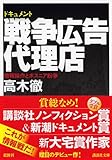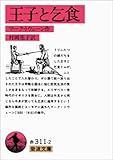phaさん、田中秀臣さんが「2014年に読んで面白かった本」という記事を書いていたので、私もマネをしてベスト5を選んでみます。
※全て和書。
5位.「政治的良心に従います – 石橋湛山の生涯」 | 江宮隆之 著
5th. “In all political conscience – Life of Tanzan Ishibashi” | written by Takayuki Emiya
I read this book because I’d like to understand the reflation economic theory.
Tanzan Ishibashi was a journalist and a politician.
He insisted and executed reflation economic theory during Showa period (mid-20th-century).
Referring to Dr. William Smith Clark (a president of the Massachusetts Agricultural College, a contributor to modernize the Northern Area of Japan)
and Saint Nichiren (a founder of Nichiren faction Buddhism), he thought it was important for men to understand religion to be ethical.
GHQ drove him out from political position because he insisted reducing cost of US base in Japan.
He had no fear to exercise economic measures against public opinion and succeeded to recover economy.
He was a person who had independent value and boldness.
Quotes from the book:
(Mentor from junior high school says)
“Modernization is not convenience and catching up to developed nations.
It’s an individualism. All Japanese have to choose and decide by themselves. You should acquire your own value.”
リフレ経済についてもう少し詳しく知ろうと思って手に取りました。
石橋湛山氏は、昭和の戦前・戦中・戦後にリフレ経済を提唱・推進したジャーナリスト・政治家。
クラーク博士や日蓮上人についても多く触れており、宗教と道徳の関係性を重視していたようです。
GHQの経費削減を求めて公職追放されたり、世論との対立を恐れずに経済対策を実行したりと、自分の判断基準と勇気を兼ね備えた人物でした。
以下抜粋です。
(中学校時代の恩師:大島正健氏)
「近代化とは、便利になればよいとか、経済や外交で欧米諸国に追いつけばよいというだけのものではないんだ。
日本人一人一人がまず、一切の行為の基準を自分自身の自覚に求めるという、個人主義に目覚めなければいけない。」
4位.「氷点」 | 三浦綾子 著
4th. “Freezing point” | written by Ayako Miura
I’ve got interested in her books when I visited a literature museum in my neighborhood.
When I saw her picture for the first time, I just thought, “Is she ‘SHE’ or ‘HE’?”, no offence.
As I knew her more, I got to respect her more.
She wrote this book based on her experience and pursued the concept of “Sin and Forgiveness”.
She also told us that the novel is the best way to describe abstract concept in detail.
近所の文学館で「三浦綾子展」が開催されていた事で、興味を持ちました。
最初に著者の写真を見た時は、「性別不詳?」(いい意味で)という印象しかありませんでしたが、
生い立ちやその人生を知るにつれ、「ものすごい人物だ」と思うようになりました。
本作は、ご自身の人生に重ね合わせて、「罪と赦し」という概念を突き詰めた作品です。
抽象的な概念を掘り下げていく上で、小説という表現手法は極めて適している、という事を教えてくれています。
3位.「ドキュメント 戦争広告代理店」 | 高木徹 著
3rd. “Advertising agency of War” | written by Toru Takagi
In writing class, one of teachers recommended this book to us.
It’s a non-fiction about civil war in Yugoslavia.
It was written based on perspective of “Public Relation Company”, the professionals of information strategies.
When you watch TV, you can see only politicians or someone like that.
However, in fact, each side of war hires professionals and fight against each other,
controlling impressions and building public opinions.
This book tells you that public opinion and justice are just relative.
You can notice that you live in the era in which values are decided upon market and competition.
Quotes from the book:
“It can be said that the Public Relation companies are ‘information merchants of death’.
There’s moral problem to induce and build international opinions by using technologies, staying far away from bullet-flying-front-line.
However, if you want restriction to this types of information war,
ultimately you might be ruled by the regime which controls every information.
It’s pretty clear that we don’t want it.”
ライター講座で紹介されて読みました。
ユーゴスラビア内戦の裏側を、「PR会社」という情報戦略のプロフェッショナルの視点から描いたノンフィクションです。
ニュースや新聞を見ている限りでは、表に出てくる人物は政治家くらいです。
実際は、対立陣営がそれぞれ「情報戦略のプロ」を雇い、情報合戦・印象操作・世論誘導などを繰り広げています。
この本を読むと、「世論」や「正義」というものがあくまでも相対的なものでしかなく、私たちは「価値観」そのものが競争や市場で決まる時代に生きている、という事が良く分かります。
以下抜粋です。
「紛争に介入するPR企業は『情報の死の商人』ということもできるだろう。
銃弾が飛び交う船上からはるかに離れたワシントンで、ファクスや電話(現在ならインターネットや電子メール)を使って
国際世論を誘導するそのやり方には倫理上の疑問が残る。
しかし、このような情報戦争という事態を完全に規制しようとすれば、結局のところ
政府などの権力が情報を統制支配する社会にするしかない。
それを私たちが望んでいないのは自明のことである。」
2位.「王子と乞食」 | マーク・トゥエイン 著
2nd. “Prince and Pauper” | written by Mark Twain
While I was reading an interview of Japanese former emperor in Showa era, Hirohito,
he mentioned this story. And I got interested.
This story starts when a prince and a pauper exchange their clothes as a diversion.
The prince is expelled from his palace because they think he is a pauper.
The prince experiences the life of the bottom and grows stronger mentally.
The pauper notices the beautiful side of his old life.
I also got interested in life of medieval city.
To prevent such poverty and misery, you can understand you need to pay expensive tax for supporting society.
This story might be one of the originals of a sudden exchange of memories and personalities,
such as “a transfer student” or “I’m her and she’s me.”
*famous stories in Japan
FYI, there was a fact of personality exchange in Italy.
I can only imagine the lightning sends their memories and exchanges them, it’s so surreal.
Quotes from the book:
(Prince: Edward the 6th)
“(to the inner circle member who says only empty words)
What do you know about pain and suppression?
My people and I do know. However, you don’t know anything.”
昭和天皇へのインタビュー記事の中で出てきたので読んでみました。
王子の部屋で、同じような背格好・顔の二人が服を交換した後に、王子が王宮から追い出されてしまうのが話の始まりです。
(と言っても、そこまでもえらい長いのですが・・・。)
王子は底辺の生活を経験する事で人格的に成長し、
乞食の少年も物質的豊かさ以上のものに気付いていく、
という典型的な少年たちの成長ストーリーです。
福祉制度の無い中世の都市での生活がどんなものか垣間見えるのも面白いです。
このような社会の発生を食い止めるためには、多少の税負担もやむを得ないのかもしれない、と自分に言い聞かせる上でも役に立つかもしれません。
「転校生」や「おれがあいつであいつがおれで」のような、二人の人物の人格が入れ替わる物語の源流の一つと言ってもいいでしょう。
ちなみに、雷に打たれて人格が入れ替わる現象は、実際にも例があるようです。
雷を通じて脳内のデータが全て転送されてしまう、という事でしょうか。。。
以下引用です。
(王子:エドワード6世)
「(耳触りのいい事ばかり言う側近に対して)
その方は、苦しみや抑圧について何を知っておろう?
余と余の臣民は、知っておる。だが、その方は知っておらぬのだ。」
1位.「奇跡のリンゴ – 木村秋則氏」 | 石川拓治 著
1st. “Miracle of Apples – a Challenge of Akinori Kimura” | written by Takuji Ishikawa
※「Apples of Miracle」または「Miracle Apples」が日本語からすると正しい語順かもしれませんが、木村さんが本作中で「俺は何もしてない。頑張ったのはリンゴだよ。」と語っていたように、リンゴが主体的に奇跡を起こしたという意味で、「Miracle of Apples」という語順にしました。
As I research about the environment, sometimes I see articles which criticizes agriculture.
I thought, “Isn’t agriculture good activity to increase and maintain ‘green’?”.
However, I noticed that there are both good and bad kinds of agriculture.
You can simply say that the good agriculture is non-chemical agriculture.
This book tells you of the great struggle of an apple farmer, Akinori Kimura.
It was said it’s impossible to grow apples without chemical pesticides and fertilizer, but he succeeded.
The story of this book includes not only agriculture, but also civilization, anthropology, and life.
The plentiful knowledge and research by the author supports the story and background.
I also watched the movie played by Miho Kanno and Sadawo Abe, but it was too much and I couldn’t think of it as the same story as the book.
Quotes from the book:
“If you think you cannot do anything, you might be looking at wrong things.
Try to see things you cannot see, not only things you can see.”
環境について調べていくと、「農業」自体がやり玉に上げられる事が良くあります。
「農業はどっちかというと『緑』を増やしたり、維持したりする活動ではないのか?」
と昔は思っていたのですが、どうやら「環境に良い農業」と、「環境に悪い農業」があるようです。
「環境に良い農業」とは、ごく単純化して言えば「無農薬農業」。
本書は、「リンゴ」という、農薬や肥料なしでは育てる事が不可能と言われていた作物を、
「無農薬」で育てる事に成功した木村秋則さんというリンゴ農家に関するノンフィクションです。
本書で取り上げられるのは単純に農業の話だけではなく、文明論や文化人類学や「人生とは?」というような内容が含まれています。
著者の豊富な知識と徹底した取材が、本書の土台や背景をがっちりと固めています。
菅野美穂さんと阿部サダヲさんの映画は、なんだか脚色し過ぎで、「別物?」という感じでした。
以下抜粋です。
「何もできないと思っていたのは、何も見ていなかったからだ。
目に見える部分ばかりに気を取られて、目に見えないものを見る努力を忘れていた。」
2014年:105冊
2014年に読んだ本は、105冊でした。
内訳は、
- 図書館から借りて記録に残したものが90冊
- 購入した本が電子書籍で10冊
- 紙媒体で5冊
です。






